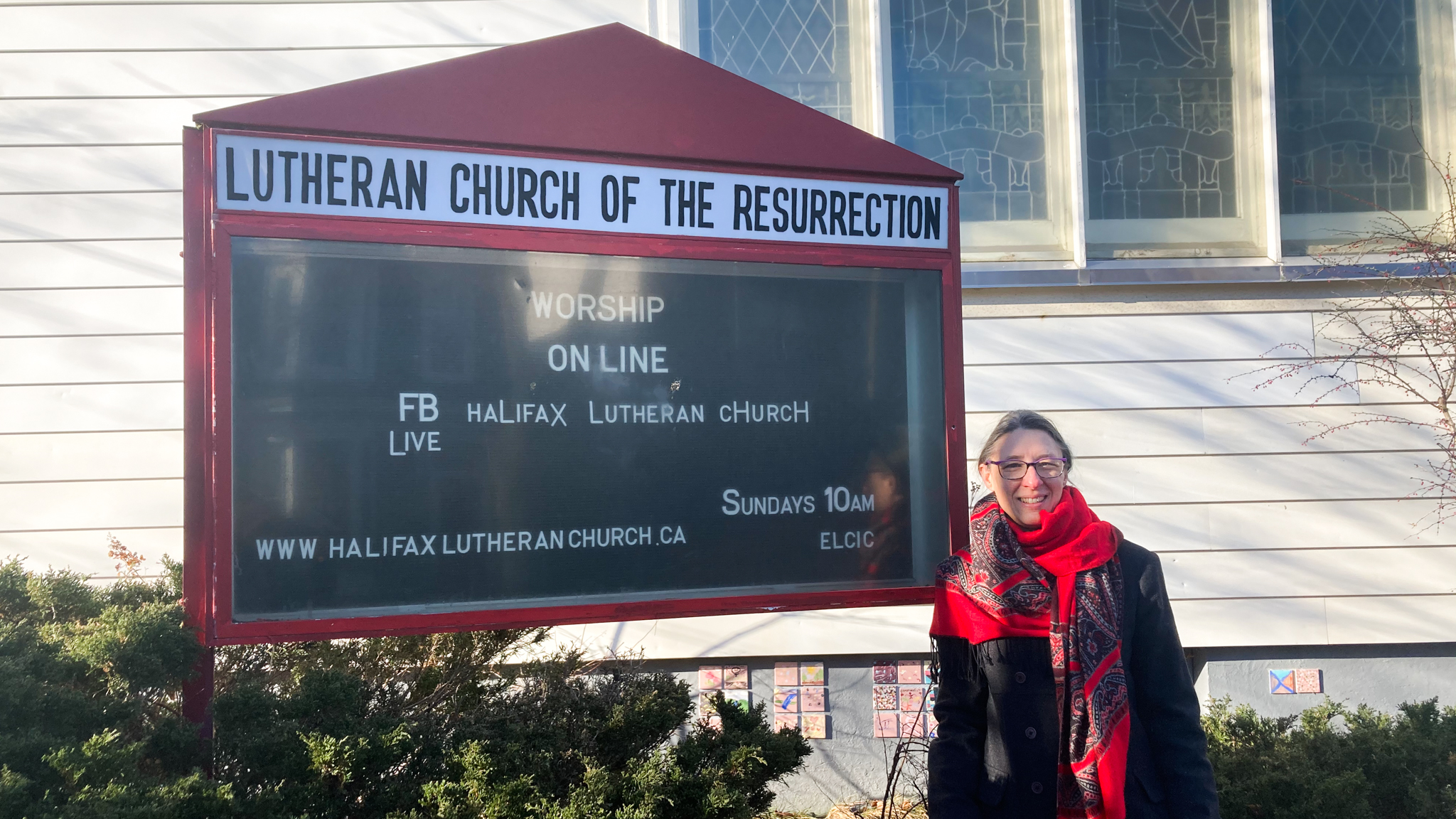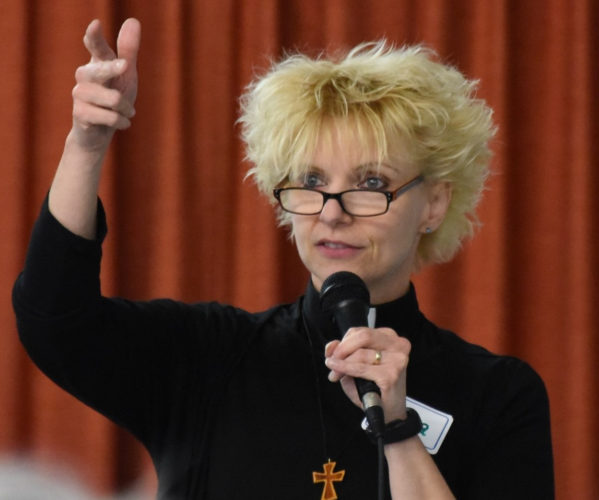Religious leaders continue to adapt in time of pandemic
Faith-based organizations are finding ways to substitute in-person gathering

caption
Pastor Kimberlynn McNabb in front of the Lutheran Church of the Resurrection.Congregations say they’re seeing many empty seats as the fear of COVID-19 persists. As life moves online, religious communities are wondering when, and if, those seats will be filled.
Currently, faith-based events in Nova Scotia are permitted, but they must be at half-capacity, up to 100 people. Attendees must wear masks and are not allowed to sing.
Darlene MacPhee usually attends Grace Lutheran Church in Cole Harbour with her mother, 80, and aunt, 73, but they’re hesitant to return.
“We reopened Church this past Sunday, but I want to wait until at least 14 days have passed after New Year’s Eve before I return. I need to see the impact of the parties,” said MacPhee.
Ben Von Bredow, the divinity intern at Halifax’s St. Paul’s Anglican Church, is missing some familiar faces.
“The demographics have shifted. A lot of seniors have not come back. They stopped coming to church in March, and some of them we have not seen since,” said Von Bredow.
In some cases, online services are helping them reach an even larger group of people than ever, though it’s hard to tell because many people can watch on the same screen.
Pastor Kimberlynn McNabb of the Halifax Lutheran Church said that the online option has resulted in new members.
“We are seeing more young people, people with social anxiety, young mothers,” she said.
She also noted that some of the shyer parishioners who never felt comfortable singing in church have begun doing so at home.
Going online has presented a few obstacles. Many parts of rural Nova Scotia aren’t equipped with high-speed internet, and some senior members struggle with computers. McNabb said one of her colleagues, a pastor in rural New Germany, had resorted to leaving messages in parishioners’ mailboxes over the summer.
Other groups have overcome their own technological dilemmas in the face of the pandemic. Judaism forbids the use of electronics during the Sabbath, which means no Zoom or live streaming.
Bassie Feldman, programs co-ordinator of the Chabad-Lubavitch of the Maritimes, said the lockdowns were especially difficult for the Chabad because so many of their events run on campus. When times were toughest, they took to delivering Shabbat meals to those who were stuck at home.

caption
Rev. Canon Lisa Vaughn speaks at an event before the pandemic hit.Rev’d Canon Lisa Vaughn, the parish vitality co-ordinator at the Anglican Nova Scotia and P.E.I. Diocese, reflected on the difficult year with pride in her community. She acknowledged the difficulty and stress that many people experienced not being able to partake in religious traditions but emphasized their perseverance and generosity.
“There’s been drive-in suppers and concerts, we have done some creative things. And folks understand the importance of giving what they have,” she said.
Given that Christian institutions often rely on donations and fundraising events, there have been concerns about financial security. But Vaughn said that community support has all but taken the worry off the table.
The coronavirus has been a challenge — and a learning opportunity.
“Online has been a good experience,” said Imam Abdallah from the Ummah Masjid. “We’ll continue to use it moving forward.”
About the author

Jon Werbitt
Jon is a journalist and music enthusiast from Montreal.
